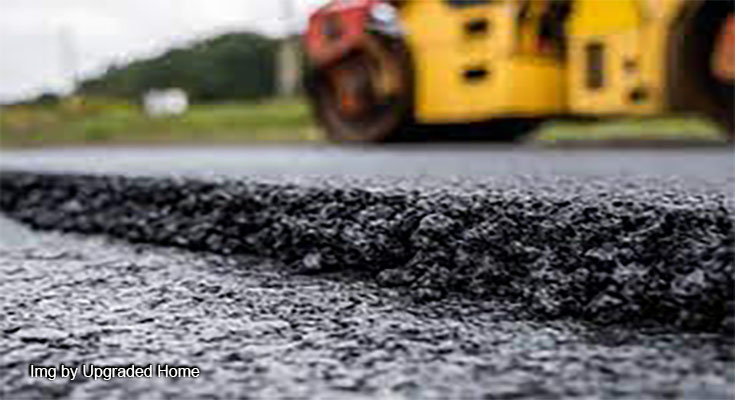When people think of asphalt, they often picture blacktop or the road in front of their house. But asphalt can be so much more than that! In fact, there are different types of asphalt pavement that are suitable for many different applications. Understanding the different types of asphalt is important before choosing a specific type for your project. In this blog post, we will discuss the different types of asphalt pavement and their benefits. What is asphalt? Asphalt is a sticky, tar-like substance that is derived from crude oil. It’s primarily used in construction to bind together other materials such as gravel and sand. There are several distinct categories of asphalt depending on how it will be used after it’s processed. Read on to learn more about the different types of asphalt paving and what they’re good for.
Super Thick Asphalt
Super thick asphalt is a thick, viscous asphalt that is used to pave high-traffic areas that require long-lasting wear and tear. Super thick asphalt is designed for heavy load applications and is often used for parking lots and driveways. Super thick asphalt is typically used in areas that experience a lot of high-impact traffic or frequent use by large vehicles. The extra thickness and durability of super thick asphalt makes it an excellent choice for areas that will see a lot of abuse. Super thick asphalt is often poured over a sub-base material like gravel, cement, or other materials to ensure that it remains in place during use.
When determining what type of asphalt to use on your property, it is important that you choose the right type of asphalt for the right purposes. Your asphalt type will determine the longevity and ability of the asphalt to withstand heavy traffic and wear and tear. While some types of asphalt, like beveled and graded, are designed to be flexible and last longer than others, it is important to understand that not all types of asphalt are created equal. For example, beveled and graded asphalt are often the types of asphalt that are used on new roads, as those are the easiest to machine and maintain. Meanwhile, thick asphalt is best for parking lots, driveways, and other areas that need a minimum of maintenance.
But even within these types of asphalt, there are variations. For example, some types of asphalt are much more economical to use than others. Typically, thicker asphalt is more economical. When compared with other materials, thick asphalt is less expensive to produce and also lasts longer. When used for paved surfaces in areas where traffic is heavy, thick asphalt can support the weight of vehicles up to 38 tons. While thicker asphalt is typically the most economical type of asphalt to use, it is important that you choose the right kind of asphalt for the right job. If you choose the wrong type of asphalt-based on its type, it could end up costing you money.
Thick Asphaltic Concrete (TAC)
TAC is a term that is often used instead of asphalt in reference to paving. The difference between asphalt and TAC is that TAC is not a liquid; it’s more like a very thick, dense material that is poured into place. The process of making TAC is similar to the process of making asphalt, but in the end, TAC is much thicker. TAC is an excellent material for paving driveways, parking lots, and other areas with constant traffic. TAC is also easy to make, so it’s relatively inexpensive for companies to purchase and use.
Although TAC is a good material for paving driveways and other areas with constant traffic, it has several disadvantages. For one thing, TAC is very heavy; a small truckload of TAC weighs approximately 600 pounds. That means it can be difficult to transport TAC from one location to another. That may not be a huge issue for a lot of companies, but if your building is located in an area that is prone to natural disasters or other situations where the roads are difficult to access, it might not be feasible for you to bring an entire truckload of TAC in for repaving.
Above all, TAC is not an ideal material for use on parking lots, sidewalks, or other areas that require heavy foot traffic throughout the day. TAC tends to be more slippery when compared to asphalt and other traditional paving materials. That means you may have more difficulty walking across a driveway or other paved surface that has TAC in it.





